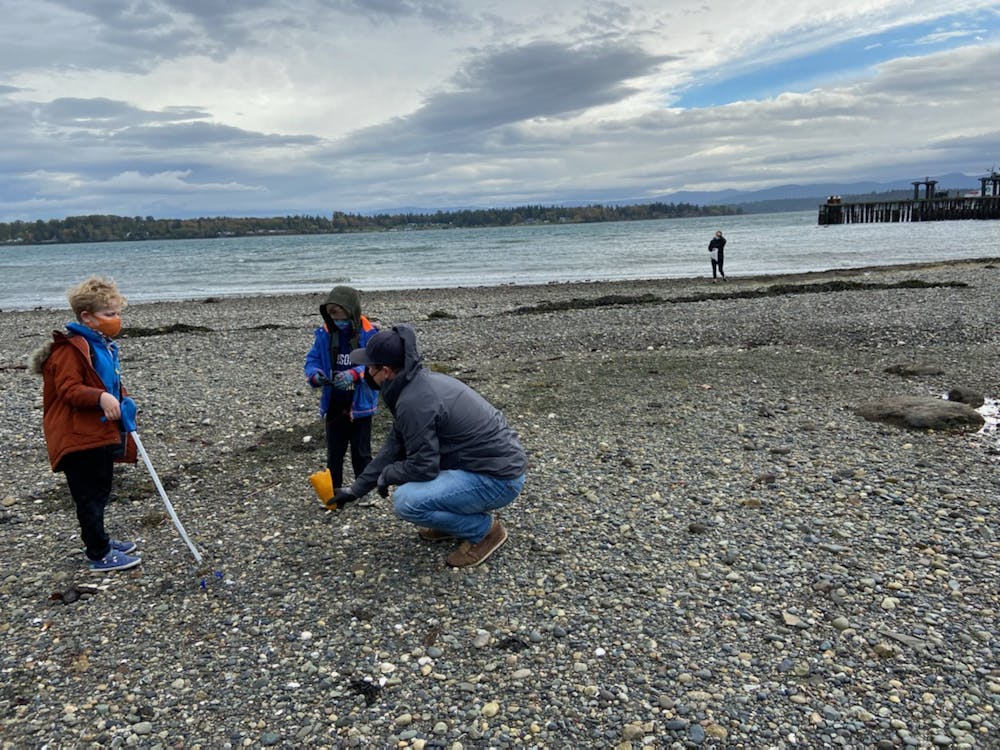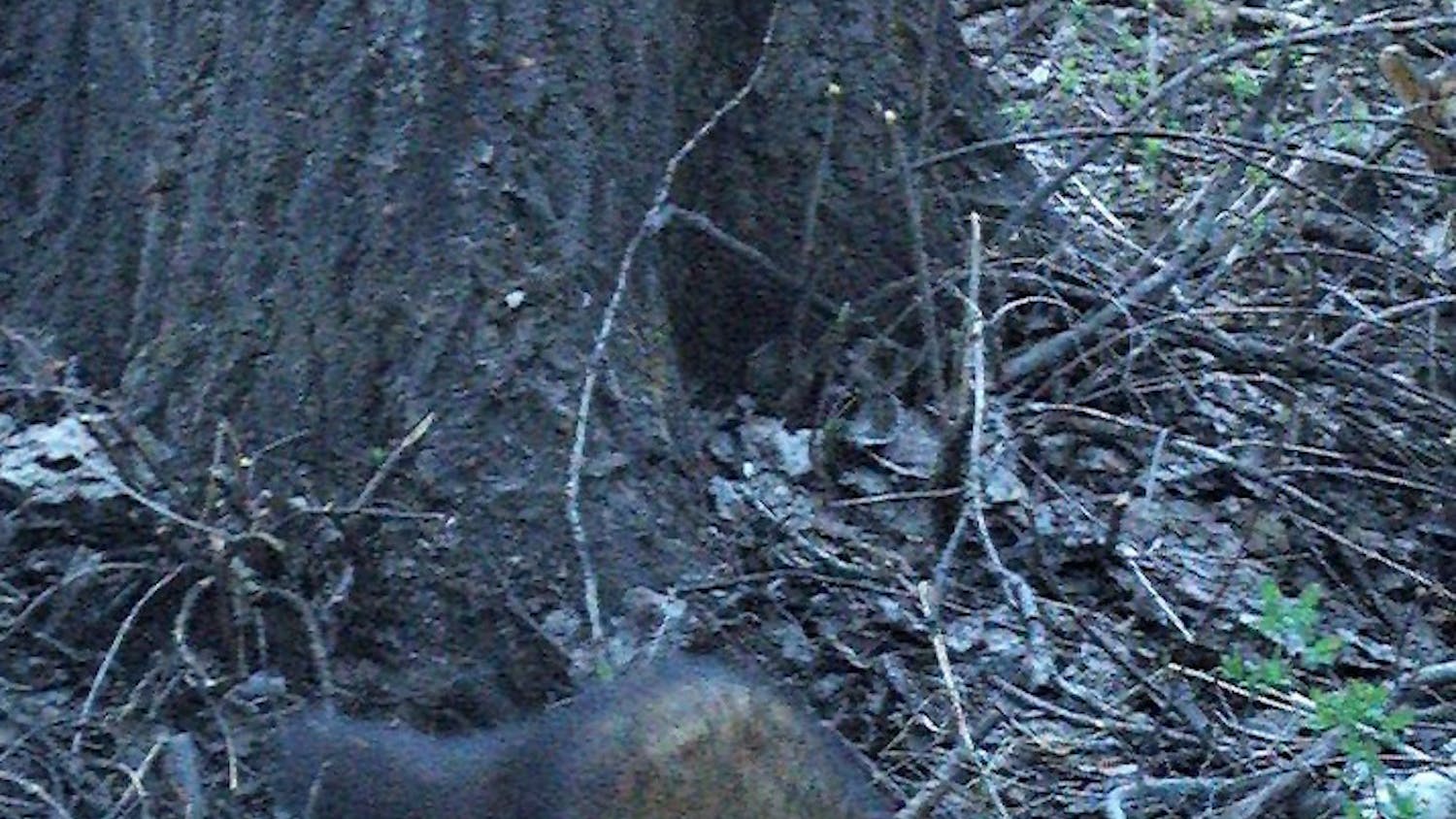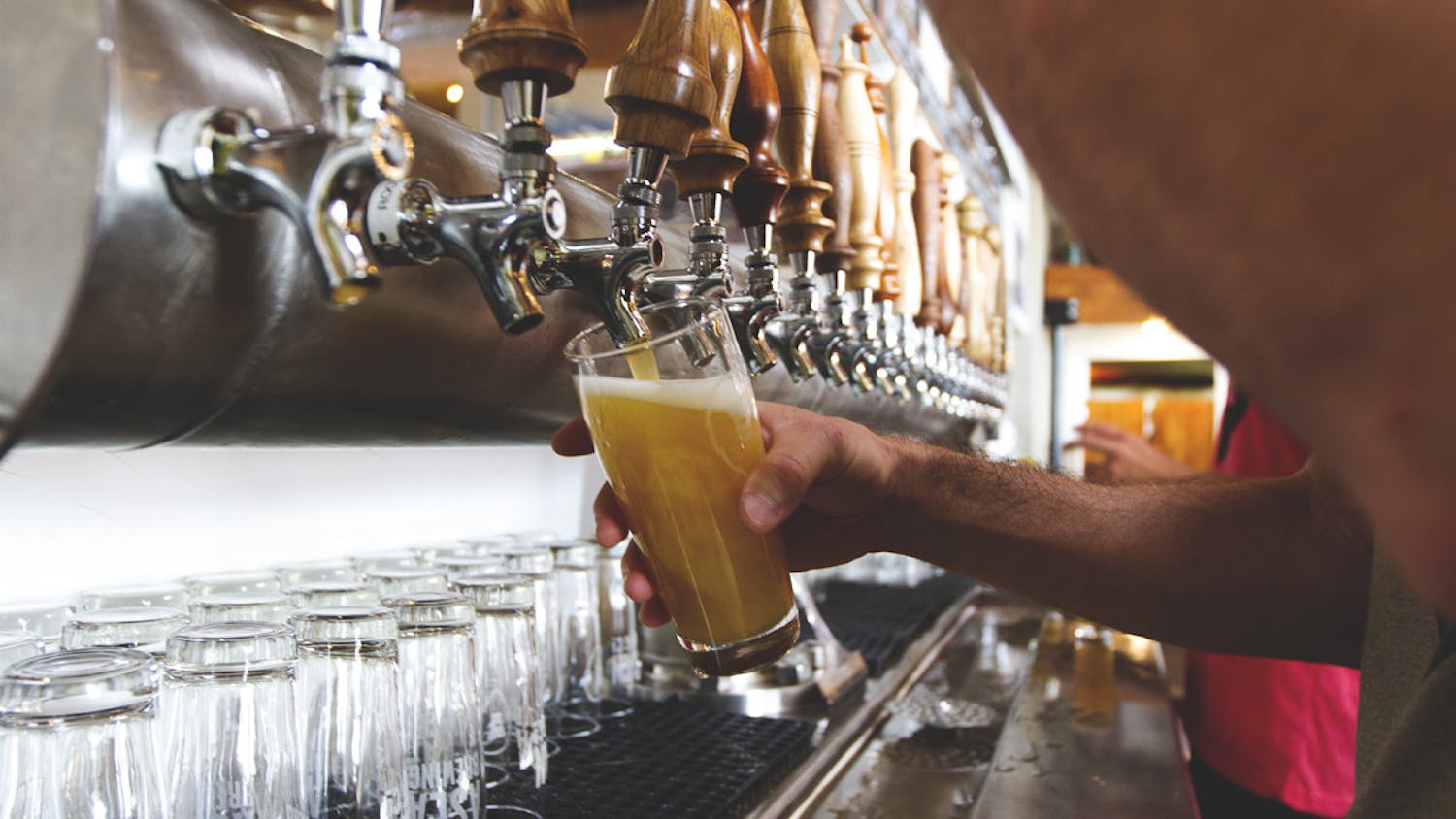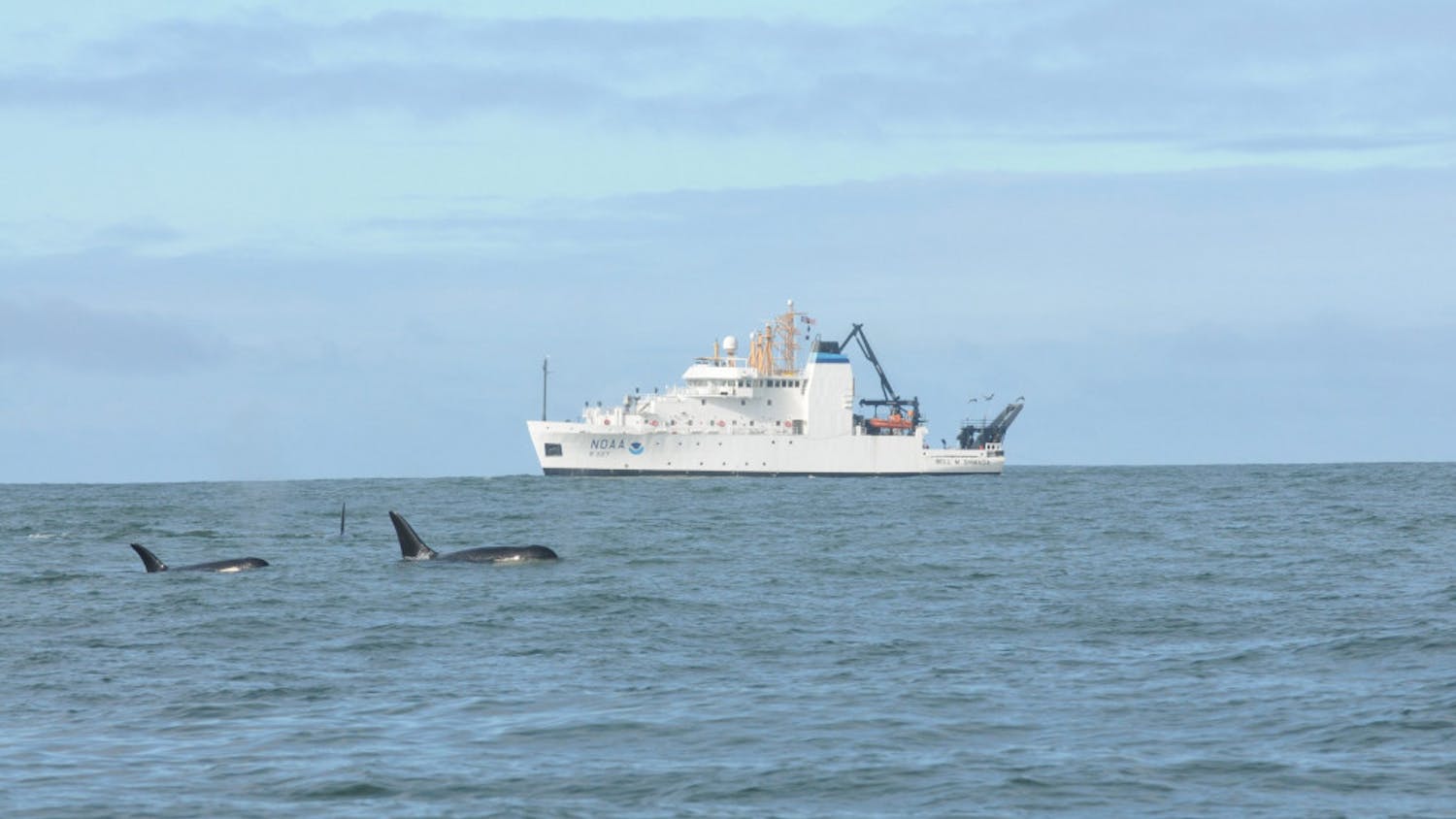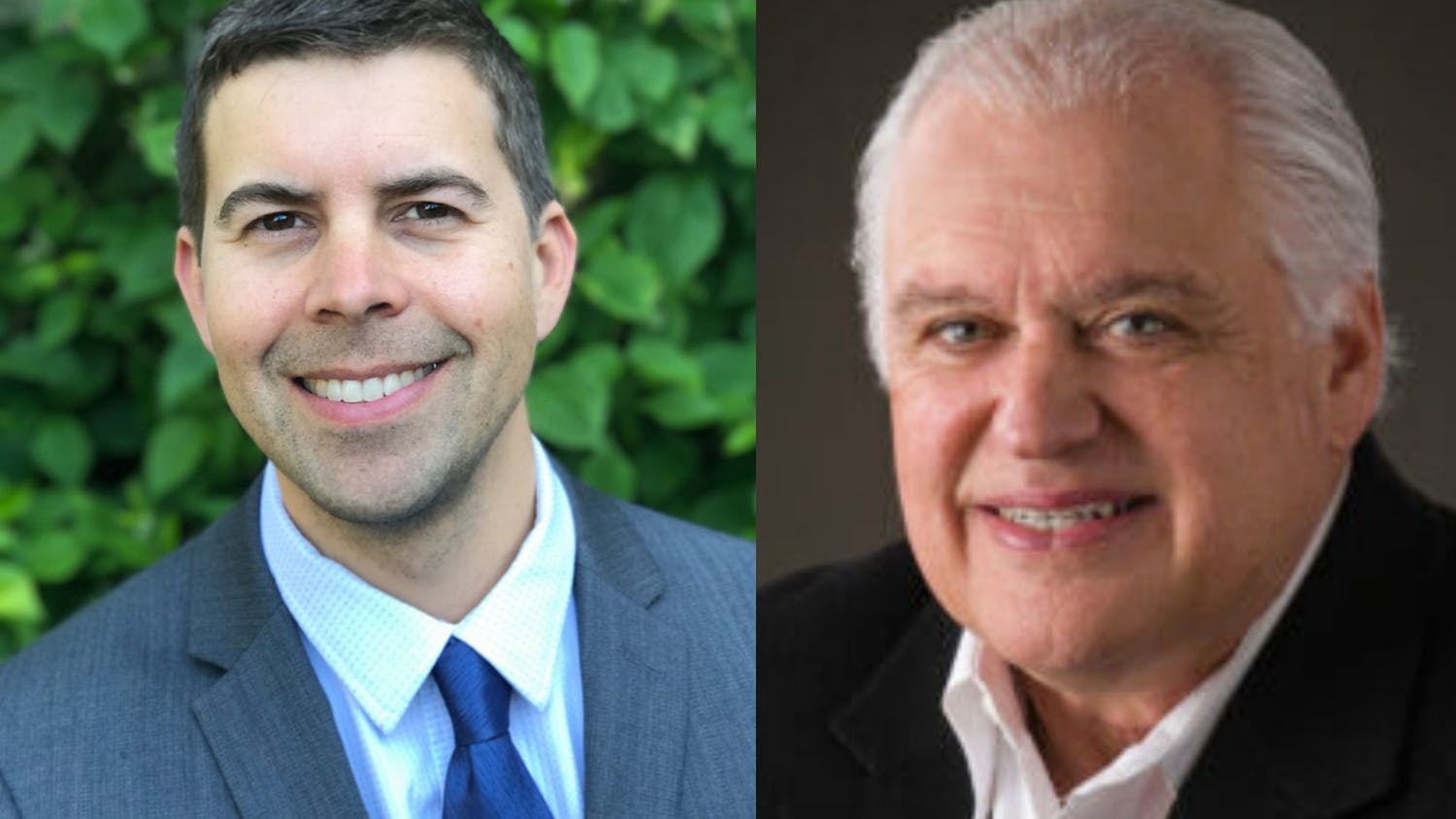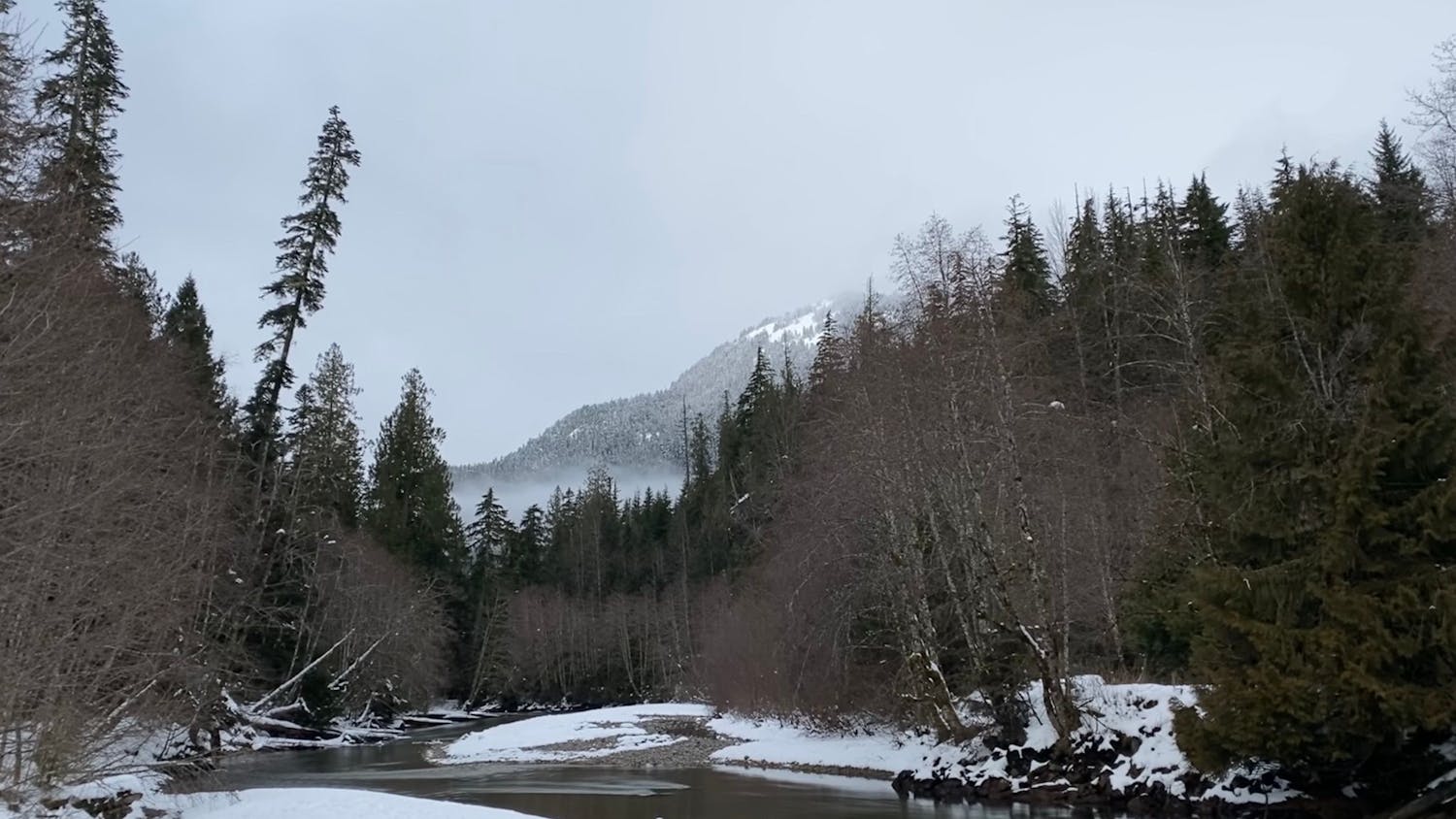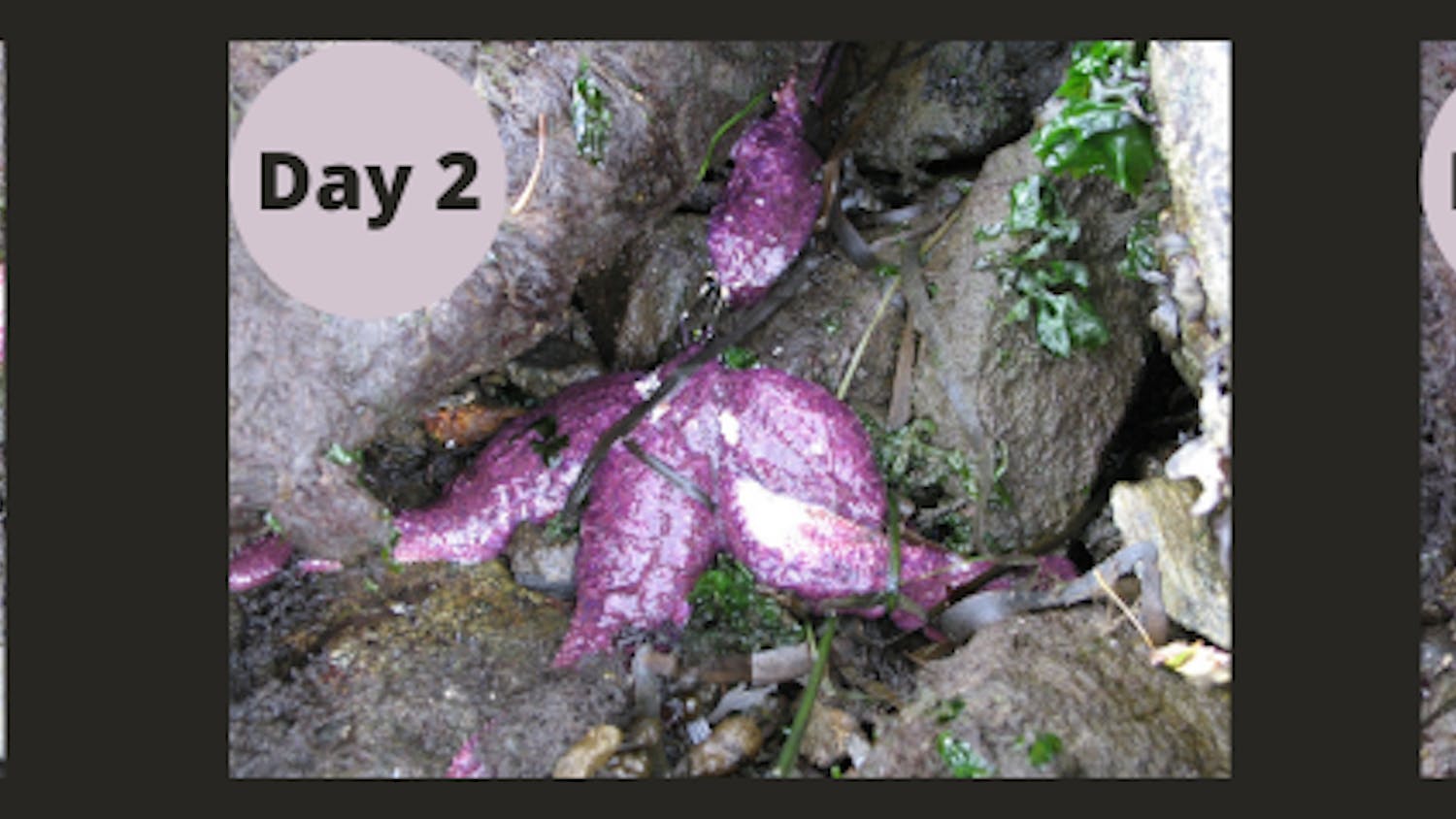On Oct. 16, volunteers across the Puget Sound region gathered in local events for Orca Recovery Day, to help protect the endangered Southern Resident orca population and work towards salmon restoration.
In Whatcom County, the Whatcom Conservation District partnered with the Whatcom Land Trust and the Nooksack Salmon Enhancement Association in hosting events, and the Lummi Island Heritage Trust held their own beach cleanups.
These organizations promote awareness around the importance of taking care of the Puget Sound ecosystem and encourage individuals to take action.
The Puget Sound Conservation District Caucus started the first Orca Recovery Day four years ago, and has made substantial growth since 2018. With only 12 partners in its first year, 2021 saw over 50 partners.
Kelly McCaffrey, coordinator with the Puget Sound Conservation District Caucus, said the work they are doing is to support and strengthen the 12 Puget Sound districts.
Conservation districts are a part of the Revised Code of Washington 89.08, which aims to preserve Washington lands, and their job is to provide technical and financial assistance to promote environmental stewardship.
“The hope is to continue building and growing this regional ethos, sense of public responsibility, so that each and every person understands they have a stewardship role in our shared Puget Sound ecosystem,” McCaffrey said.
McCaffrey said there are a number of ways for people to get involved such as volunteering at restoration events and communicating with elected officials about the importance of the ecosystem.
“College students are the future,” McCaffrey said. “Though sometimes it may feel like the future and the state of the world is out of control, in reality nothing could be further from the truth.”
Representative Sharon Shewmake of Washington’s 42nd legislative district attended the Lummi Island Heritage Trust’s beach cleanup with her two children and wanted to show them the importance of environmental stewardship.
The Lummi Island Heritage Trust had a number of volunteers participate at multiple locations, and they worked to collect debris from the beaches of the island.
Rep. Shewmake said that there is work being done at the state level, following the recommendations of Gov. Inslee’s Orca Task Force, but there is more to be done.
The Southern Resident orcas are iconic to the Puget Sound region and are a large part of the Pacific Northwest’s identity.
“There’s not just one thing, there are so many pieces,” Rep. Shewmake said. “When we recover orcas we also can do a lot of work on salmon, which is important for tribes and tribal culture, but also for commercial fishermen.”
Sarah Brown, stewardship program coordinator with the Nooksack Salmon Enhancement Association, said recovery and restoration takes collective community action, which is what the NSEA is working toward through restorative work, education and stewardship
“Orcas are an icon of the Puget Sound region and so are salmon,” Brown said in an email. “They are the foundation of our local ecosystems, economy, and the cultures of Indigenous communities that have lived here for generations.”
The Chinook salmon has been on the endangered species list since 1999 and are the main food group for orcas. With only around 74 orcas in the Puget Sound region, salmon restoration is crucial.
Mia Somenek, stewardship coordinator with the Lummi Island Heritage Trust, said the Chinook salmon population has been dwindling due to pollution, loss of habitat and lack of food sources.
Survival rate can be low for the Southern Resident orcas, including for the three that were discovered to be pregnant this year, Somenek said they have about a 50% chance of survival.
“One of the really easy ways we can help [orcas] is to make sure we are improving habitat for salmon,” Somenek said. “The more salmon there are, the more food there is for orcas, the better chance they have of survival.”
Joe Timmons, a volunteer at one of the beach cleanups on Lummi Island, said this is just one way for the community to take action, and he said beach cleanups and local events are important ways for the community to get involved.
“Whether it’s preventing trash from entering the food system, or picking up trash before it makes its way into the waterways, we can all do our small part to make this state better and help orcas survive,” Timmons said.
Bella Neff (she/her) is a third-year student studying journalism and political science, and reporting on city news. You can reach her at bellaneff.thefront@gmail.com.


